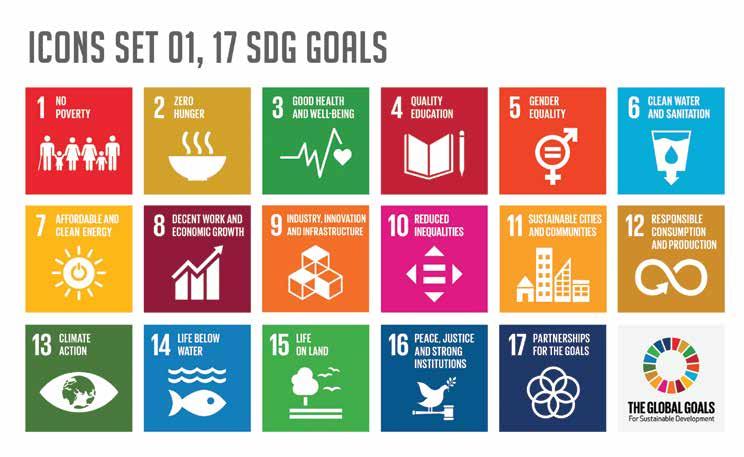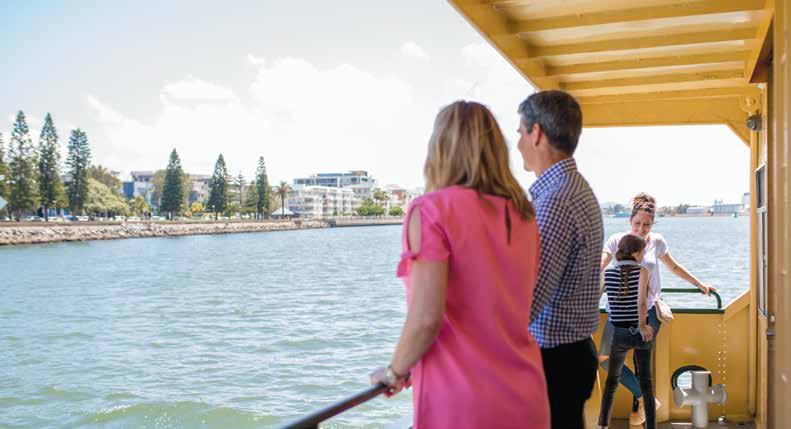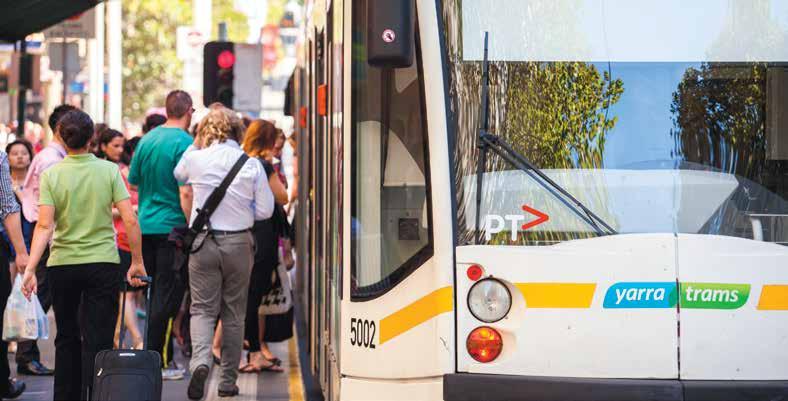
4 minute read
Hitachi committed to sustainability
from REX Dec 2019
by Prime Group
Committed to sustainability
Hitachi is a fully integrated global provider of rail solutions across rollingstock, signalling, services and turnkey projects. With a presence in 27 countries, it believes its commitment to sustainability can make a difference.
Hitachi faces challenges such as delays in production, reliability issues and not delivering on easing congestion, all of which have the potential to undermine operations. To tackle these risks, Hitachi is implementing efficient production facilities, effective project management, robust testing and commissioning, and stringent quality assurance and control. For example, the Dynamic Headway solution, which is now undergoing feasibility studies in Copenhagen, aims to monitor passenger numbers with sensors at stations and optimize the number of trains needed, automatically, to reduce station congestion and improve energy efficiency. If the monitoring technology fails, neither of those goals would be achieved.
Innovation and sustainability are key in the rail industry, and the UN Sustainability Development Goals (SDGs) underpin much of Hitachi’s work. At the same time transportation is a fundamental element in every city’s development as transport enhancements and improvements in connectivity let people enjoy wider opportunities and benefits. Managing director at Hitachi Information Control Systems Europe, Tim Gray, stated T HE RAIL SECTOR IS INTIMATELY connected to everyday life, putting it in a unique position to offer solutions to societal issues, such as the challenges of population growth and urbanisation. The global population is forecast to grow to approximately 10.8 billion by 2080, placing pressure on transportation networks, and there are already more people living in urban areas than rural ones. As society seeks ways to ease congestion in high-density areas, metro trains, trams and monorails become increasingly attractive. Connecting cities is an area in which Hitachi believes it can make a difference. Rail is an environmentally friendly alternative to car and air travel, producing 3-5 times less CO2 per passenger kilometre, and Hitachi is striving to develop more energy-efficient products and technologies, including electric and hybrid trains.
Technologies like autonomous drive will also create new opportunities. If people can buy tickets for the entire journey rather than the train, riding to and from the station by a driverless car, rail may see wider use even as it undergoes new transformations as part of the transport ecosystem. 17 SDG Goals.
RAM 3.0 The Digital Twin Solution For Infrastructure “ The risks we face from such factors as climate change and a global population explosion have grown to unprecedented levels in recent years and are threatening the sustainability of our way of life. ”

dessan REVEAL Railway Simulator and Data Analytics
“We are excited by the global opportunity the SDGs present and are committed to identifying opportunities to support clients and stakeholders in making progress towards their own commitments in this space. We are also keen to collaborate with our industry partners on areas such as Digital Twin to deliver benefit to our customers and society at large.” One of Hitachi’s specialties is the delivery, support and maintenance of signalling control software for automatic route setting and high fidelity simulation for signaller training. In an increasingly digital world Hitachi says it is keen to develop strategic partnerships with organisations that can connect and add value for their clients via the delivery of complimentary solutions. Through a more collaborative development program, Hitachi will primarily address SDG 9.
Recently, Hitachi has been working on a digital twin solution with a partner organisation called Specialist Project Integration (SPI) to combine simulation and decision support tools. SPI are experts in information management and support their customers through major construction project delivery and with enterprise digital transformation. Their toolkit includes a range of BIM modelling solutions which complement our products and enhance the total solution. Benefits of this collaboration include cost reduction through more accurate design processes, a unified asset database, which increases efficiency as options are modelled to prove operational benefits and, most importantly, safety, through more effective possession management during construction and whole life asset condition monitoring.
In it’s Corporate Commitment, Hitachi is focused on SDG4, as part of which they promote careers in engineering through sponsorship of the Women in Engineering Society and other graduate schemes.

Hitachi’s Corporate Commitment has a secondary focus on SDG8 and 13. Contracts around the world increasingly require proof of sustainability, and this is something we are working on with suppliers and clients alike.
The Hitachi team will be attending AusRail in December and would like to meet with other organisations in the rail industry that share their philosophy and commitment to the SDGs and they will be seeking opportunities to collaborate on projects to deliver sustainable solutions.
If you would like to know more about HICSE’s products and services or would like to arrange a meeting please visit www.hitachi-infocon.com/ contacts/ If you would like to understand more about Hitachi’s commitment to sustainable development please visit: www.hitachi.com/sustainability/ Hitachi has been working on a digital twin solution with SPI.


Keolis Downer is the leading multimodal transport operator in Australia. We are proud to partner with Governments and Transport Authorities to design, operate and maintain public transport and mobility services that are integrated and adapted to local needs.
With more than 4,000 employees and a presence in five states, Keolis Downer enables 250 million passenger journeys per year. We operate and maintain the largest tram network in the world in Melbourne (Yarra Trams), the light rail network on the Gold Coast (G:link), and more than 1,200 buses in NSW, Western Australia, South Australia and Queensland. Since 2017 we have also been operating the integrated transport network in Newcastle that includes regular bus services, On Demand transport, ferries and from 2019 the new light rail.
www.keolisdowner.com.au










